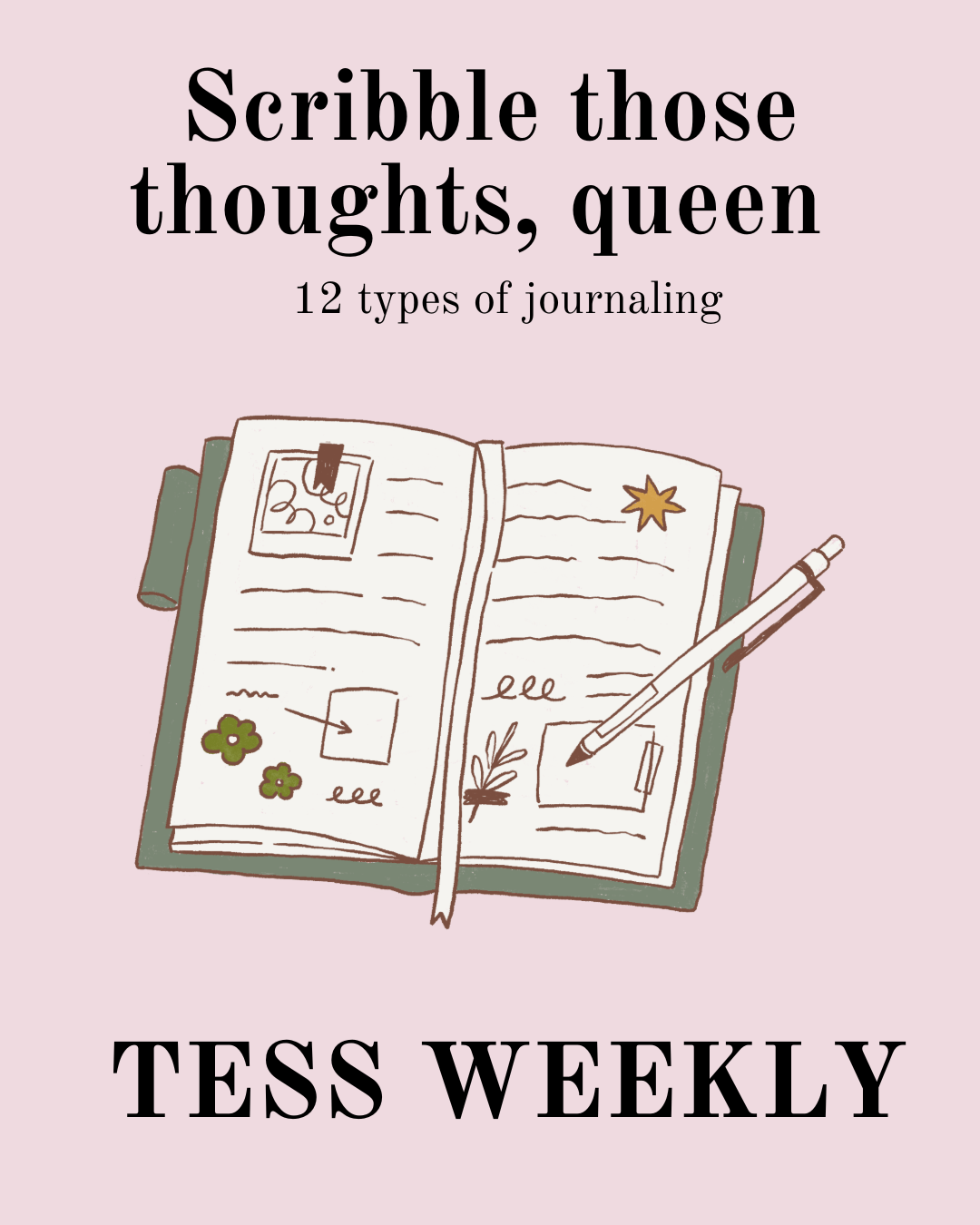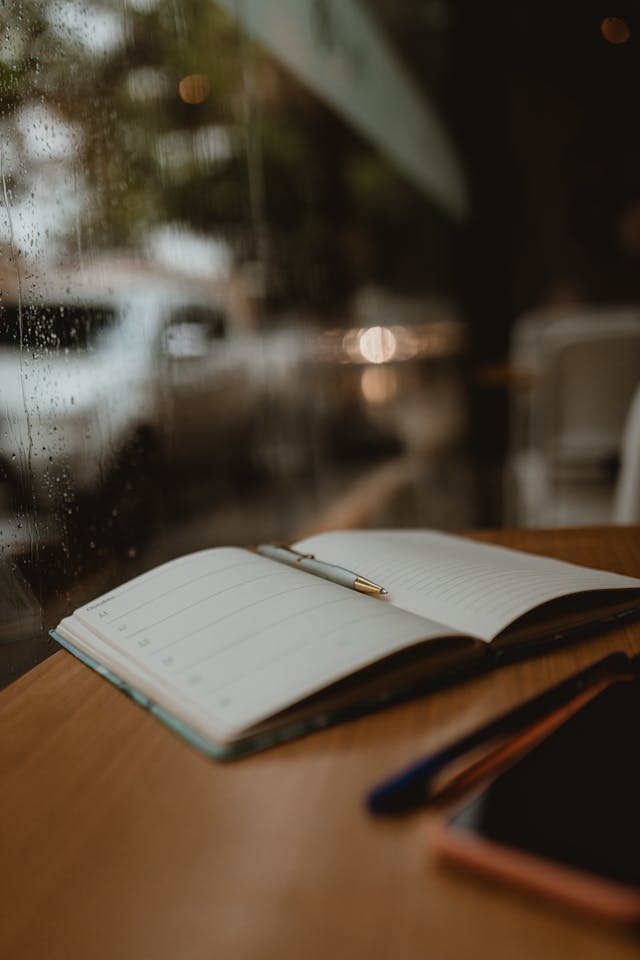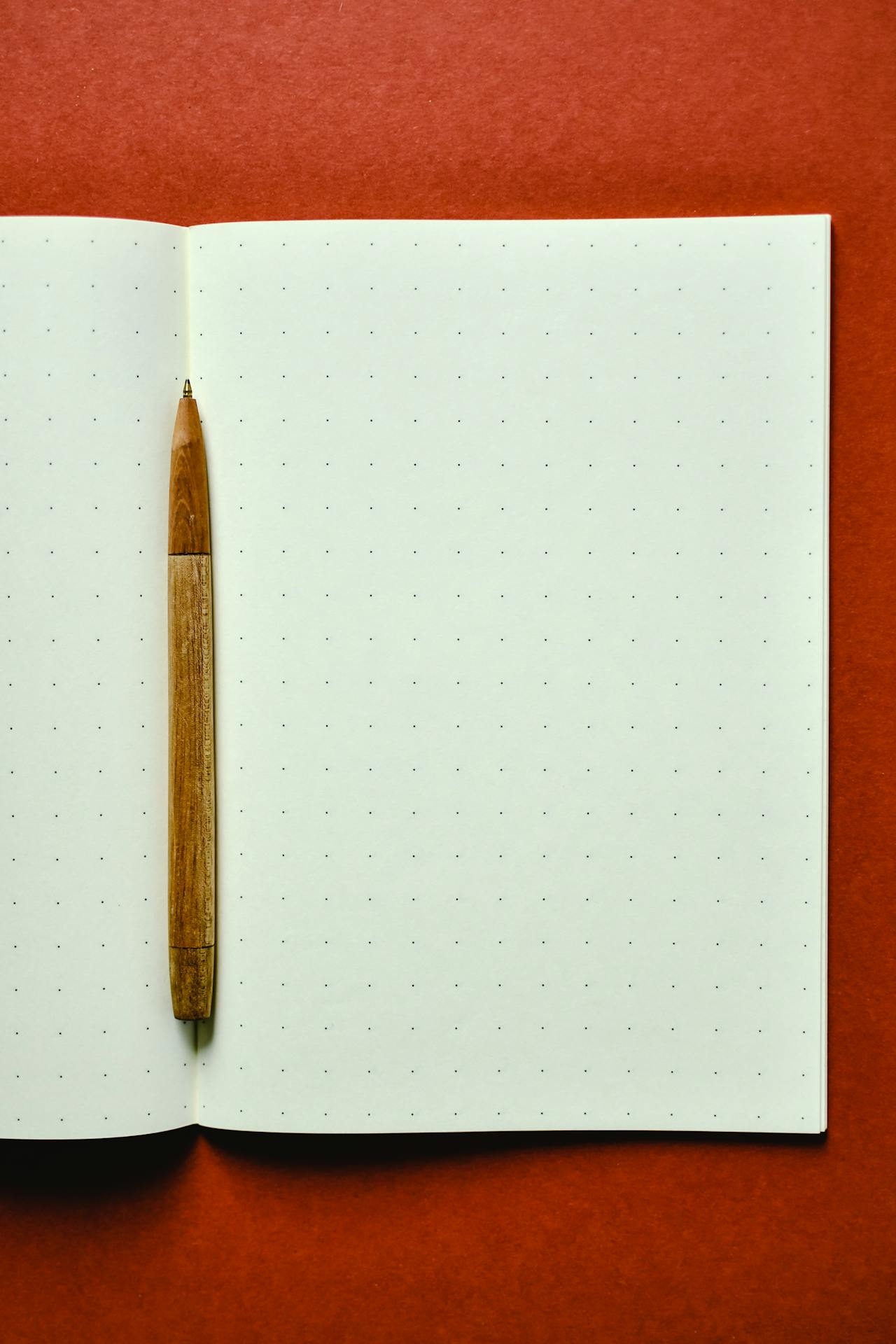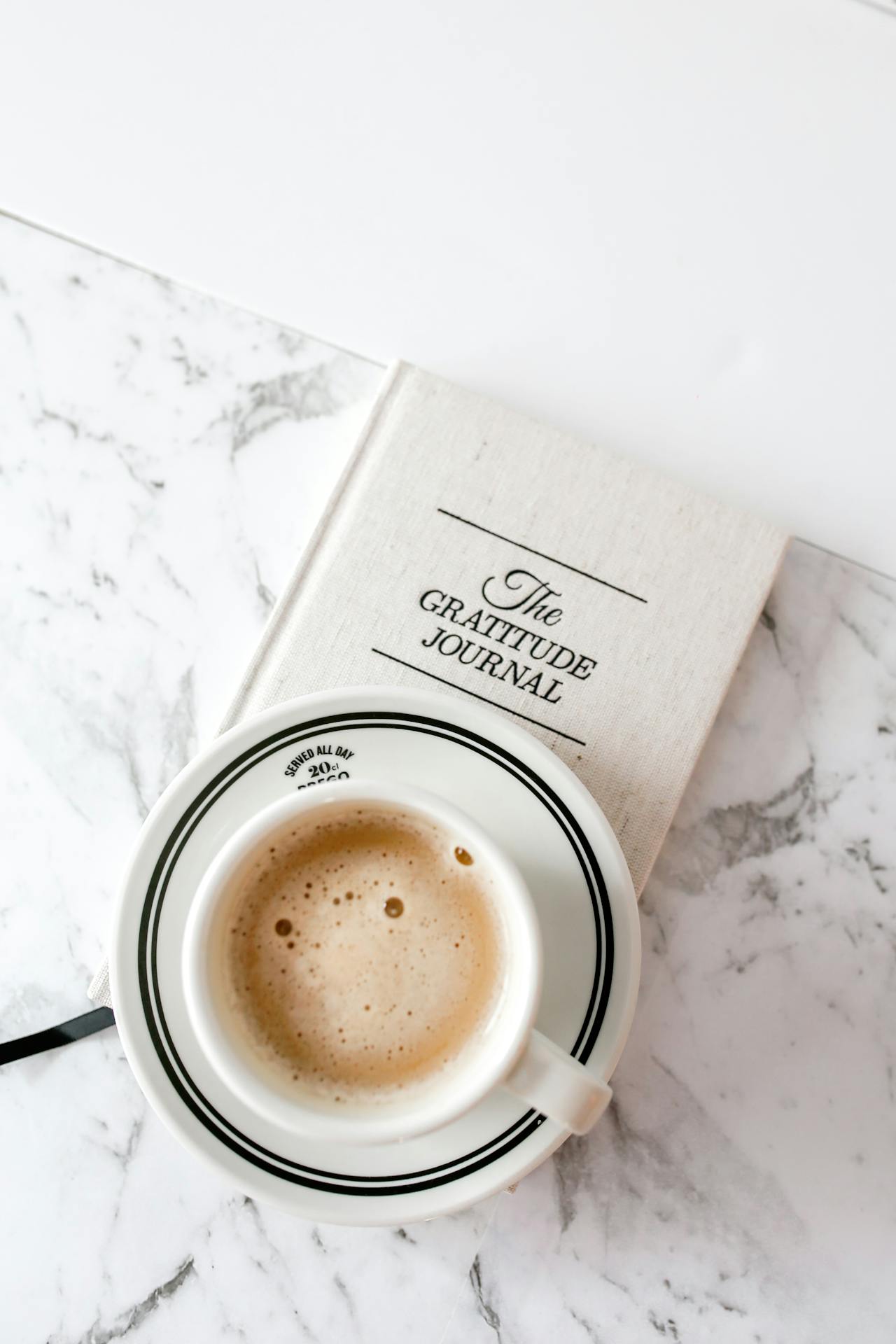Scribble those thoughts, queen – 12 types of journaling
We all need a safe space or place to word vomit all of our thoughts and feelings. Whether that’s your mom, your best friend, your pillow, your notes app, a journal… or even multiple of these.
Of these options, journaling is highly utilized as a method of processing thoughts and feelings, no matter how complicated they may get. According to an article by David B. Feldman, Ph.D., of Psychology Today,
…about half of us have written in a journal at some point in our lives, and somewhere in the neighborhood of 1 in 6 people are active journalers right now.
In my personal life, I journal for a few reasons, all of which benefit my mental health and the processing of all the things that happen in my brain on a day-to-day basis. Sometimes I will utilize journaling prompts as guidance for my expression, and other times I will have some specific thoughts and feelings to process.
Journaling: Benefits and Personal Thoughts | 12 Types of Journaling | How to Choose a Type

Journaling: Benefits and Personal Thoughts
As I (sort of) explained above, journaling is the practice of writing down your thoughts, feelings, and experiences as a form of processing, self-development, self-awareness, and/or self-care.
The benefits of journaling are endless, considering that each person can utilize journaling as a different, nuanced tool in their self-care toolbox. Some of the key benefits include:
- Aids processing of thoughts, feelings, and experiences
- Supports self-reflection and awareness
- Connects us to our creative side
- Logs moments of struggle and moments of thriving
- Encourages goal setting and future thinking

Personally, employing different types of journaling has introduced me to so many new ways to process emotions that I really struggle with. I’ve always been a vocal person when it comes to my opinions, thoughts, and feelings, but sometimes I need to write things down or create things that express them.
A huge part of my journaling experience is journaling about things that are outside my control. I can change myself, my habits, my career, my life path… but there’s always going to be uncontrollable outside influences and it’s been noticeably helpful for me to process, acknowledge, and accept the consequences (whether negative or positive) of them.
12 Types of Journaling
Daily Journaling
Daily journaling is exactly what it sounds like – taking time out of every day to journal about that day, the events that took place and how you felt about them, your mood throughout the day, etc.
Bullet Journaling
Bullet journaling includes much more than just writing about feelings and thoughts (although it does include this). Various types of lists, planners, calendars, and activities can appear in one. For example, folks will often keep mood trackers, movie lists, monthly and weekly calendars, etc. in their bullet journals. The possibilities are endless with this one.

Timed Journaling
Timed journaling is the practice of setting a specified amount of time each day/week that you want to journal and often focuses on how long you journal rather than what you write. One might set a timer for 5 min, 20 min, or even an hour, and require themselves to write for that whole time.
Memory Journaling
Memory journaling is a method of recording memories, good or bad. Sometimes this type of journaling will also include expressing how you felt about this memory or finding a different perspective or meaning to the story.
Reflective Journaling
Reflective journaling is similar to daily journaling, although you can opt out of the “daily” part for this one. This type of journaling is used to reflect on experiences, thoughts, feelings, moods, etc. in order to process and fully understand yourself in those moments.
Goal Setting Journaling
Goal setting journaling is another self explanatory one. Often times folks will utilize a goal setting journal to set and track their goals, as well as reflect on how well they kept up with goals or why they weren’t able to. Additionally, you can seek to understand what you are motivated by and why.
Gratitude Journaling
Gratitude journaling focuses on thankfulness and positivity. Even in our darkest of times, reflecting on what we are grateful for can support our positive mentality and optimism.

Dream Journaling
Dream journaling is a method, like memory journaling, of recording/collecting dreams. Whenever you have a weird and wacky dream, or a super terrifying nightmare, or maybe even a heavenly, floating-on-a-cloud dream, write it down.
Spiritual Journaling
Spiritual journaling typically entails keeping a journal that aligns you with your spirituality. Whether that means writing down prayers, tarot reading results, moon phase mood charts, etc. Anything that connects you with your spirituality or religion belongs in a spirituality journal.
Pocket Journaling
Pocket journaling is keeping a teensy weensy journal with you. Its purpose is to serve as an outlet on the go. No need to bring a big journal with you when you can bring a little notebook and jot down notes, do to lists, and ideas wherever you go.
Project Journaling
Project journaling emphasizes keeping track of a certain project you’re working on. It can help you stay organized, reflect on how the project is going, identify problems, and plan future projects, too.
Idea Journaling
Idea journaling is a method of keeping track of new ideas, inspirations, and motivations.

How to Choose the Type of Journaling for You
There are tons of different types of journaling, which can lead to some frustration and confusion when trying to pick the best type for you.
In my (humble) opinion, everyone deserves to personalize and customize their journaling experience however they’d like. Now if you’re like me, and guidelines become rigid rules that you feel the need to follow, that’s okay! If you want to have one of each type of journal because it feels wrong to mix them, do it! If you’d prefer to have one journal where you can dump all kinds of thoughts, feelings, lists, projects, dreams, goals, etc., then do that! Your journal is YOUR JOURNAL. No one can tell you what does and doesn’t belong there.
Choosing what to write down when all depends on what you’re feeling needs attention. Like I mentioned earlier, when uncontrollable outside forces are reigning in my life, I’ll write about those. When I want a more introspective, insider look on how I’m doing, I’ll write about that. If I’m having lots of good ideas one week, I’ll write those down.
It’s entirely up to you. If you need prompts, use them! It’s okay if you want to write but you’re unsure what to write about.
If you enjoy journaling and you work closely with a therapist or a mental health professional, ask them if they have any suggestions for you.
All in all, take care of yourself. Learn about yourself. Love yourself. Set goals for your future. Reflect on your past. Connect with your dreams and your spirituality.
Tata, Lovelies <3